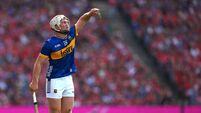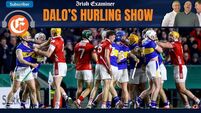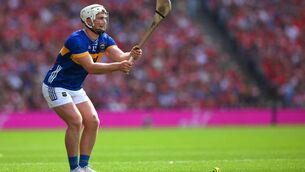Lilywhites unsung hero
He is part of a select group of dual Railway Cup medal holders, he won All-Ireland medals in U21 football and junior hurling, and uniquely, was chosen on both Kildare millennium teams.
Add in a career in administration which featured membership of the Central Council for a decade and a half and a spell as chairman of the Hurling Development Committee. You could say he is one of the county’s best-known players of his generation.














